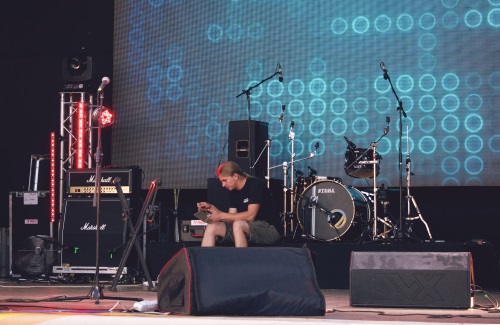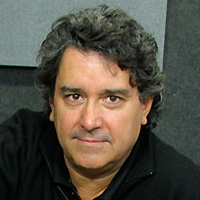I’m a huge believer in endorsements. Watch a professional football game and you see Bose on every headset, a Nike swoosh on every shoe, Matthew McConaughey driving a Lincoln, and George Clooney pumping Nespresso coffee. One of the most iconic moments in sports was Tiger Woods hitting a golf ball that just barely tipped into the hole, displaying the Nike logo in slow-motion on millions of TV sets around the globe as it finally went in.
At Radial Engineering, we used endorsements in every ad, and had artist posters on every wall at trade shows. People would stop by, look at the posters, search for artists that they knew and walk away convinced Radial was the DI box of choice.
I’m proud to say that over the years, we never once paid for an endorsement, and except for the elite, most artists also paid for the gear. They, like everyone else, wanted to be part of a winning team.
I recall early in my career as a product manager for Fender in Canada, I handled endorsements north of the border and blues guitarist Jeff Healy was gaining notoriety. We were backstage at a show when his cohort was trying to get us to provide a bunch of free gear. My goal in negotiating was to have them pay for some stuff and get some stuff for free.
As the cohort pushed harder, I suggested that I could put him in touch with another guitar and amplifier company that would be pleased to send him and Jeff anything they wanted for free, adding that an association with Fender meant associating yourselves with greats such as Eric Clapton and Jimi Hendrix.
As it happened, at about that time Jeff landed a big part in a movie starring Patrick Swayze called “Road House” where he gained notoriety and his career took off. Soon thereafter he ended up doing an endorsement with Fender.
Making It Work
I’ve often been asked how we assembled such a huge artist roster. The simple answer: hard work. Whenever a band would come through our home base of Vancouver, we’d stop by the venue and introduce ourselves. We’d bring a suitcase or two full of toys and parade them in front of the techs and anyone else that would listen.
Over time, the same techs would move from one band to the next and soon, they would take Radial with them. If there was an opportunity to get an endorsement with a famous player, we did what we could to secure it. We also spent copious hours contacting management companies and trying to find email contacts via the band’s website, attempting to get in the door.
One of the first artists that we signed was Eric Johnson. He’d heard about the Tonebone Classic tube distortion pedal and wanted to try one.
During my first discussion with Eric, I was excited and jubilant but made the biggest error one can make in this arena: I told him I was a fan. There’s a line in the sand between being part of the business and the fan base that one should never cross. When it happens, the artist no longer looks to you for advice; rather, his/her radar goes up and you’re just another fan wanting a piece of his/her time.
The better approach is getting the guitar tech or audio engineer to campaign on your behalf. Building relationships with the folks backstage is critical.
In fact, techs want to be heroes. They love to be the interface between the artist and the manufacturer. But unless you’re careful, this too can lead to problems. Sometimes when techs get a bit too cozy, they may order a product using the relationship of an officially endorsed artist to piggyback a gear purchase for his new employer, which can put people in hot water.
For instance, the new band may have been in touch with a dealer to buy a product and is now bypassing the dealer to buy direct to save a few dollars. In the mind of the retailer, all musicians are their customers. So when a manufacturer sells direct they’re taking bread off the retailer’s table. In my view, the only time one can justify doing so is when it can benefit the dealer by having the endorsement help sell products.















